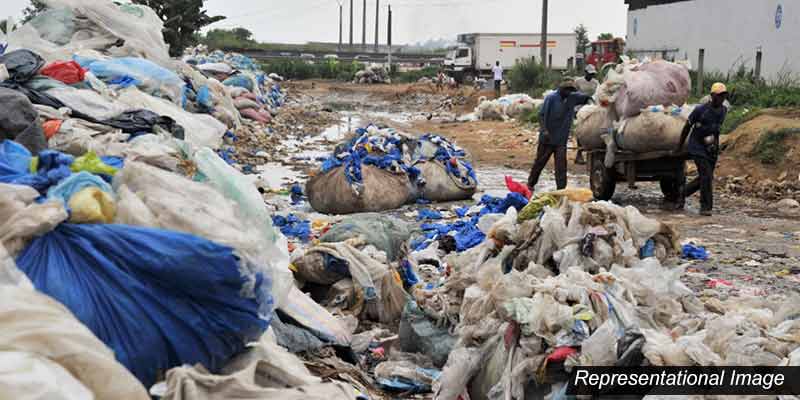- World
- Nov 29
- Kevin Savio Antony
Busan hosts UN plastics treaty talks
• The fifth session of the UN Intergovernmental Negotiating Committee (INC-5) to develop an international legally binding instrument on plastic pollution, including in the marine environment, opened on November 25 in Busan, South Korea. The session aims to conclude negotiations and finalise the text of the agreement. It will conclude on December 1.
• INC-5 follows four earlier rounds of negotiations: INC-1, which took place in Punta del Este in November 2022; INC-2, which was held in Paris in June 2023; INC-3, which happened in Nairobi in November 2023; and INC-4, held in Ottawa in April 2024.
• More than 3,800 participants have registered to participate in INC-5, representing more than 170 countries and over 600 Observer organisations.
Plastic Pollution
The Scale of the Crisis:
• The widespread use of plastic, owing to its adaptability and versatility, has resulted in an alarming surge in global production and waste:
• Annual global plastic production rose from 234 million tonnes (MT) in 2000 to 460 MT in 2019 and is projected to reach 700 MT by 2040 (OECD report).
• Around 400 MT of plastic waste is generated annually, a number expected to increase by 62 per cent between 2024 and 2050.
• Only 10 per cent of plastic waste has been recycled thus far, according to The Lancet (2023).
Environmental and Health Hazards:
• Plastic waste leaks into ecosystems, breaking into microplastics and nanoplastics, which harm wildlife and contaminate food chains.
• Plastics release harmful chemicals linked to cancer, diabetes, reproductive disorders, and neurodevelopmental impairments (UNEP studies).
Climate Impact:
• Plastic production and waste management contributed 3.6 per cent of global greenhouse gas emissions in 2020, with most emissions arising from fossil fuel-based production.
• If unchecked, emissions from plastics could increase by 20 per cent by 2050 (Lawrence Berkeley National Laboratory).
India’s Contribution:
• India accounts for 20 per cent of global plastic pollution, emitting 9.3 MT, surpassing Nigeria, Indonesia, and China (Nature, September 2024).
Key Agenda of the Treaty Negotiations
The treaty seeks to establish a comprehensive framework addressing plastic pollution across its life cycle, focusing on:
• Introducing caps or bans on specific plastic types, products, and harmful chemical additives.
• Setting legally binding goals for recycling and integrating recycled materials into consumer goods.
• Ensuring alternative livelihoods for workers impacted by reduced plastic production.
However, sharp divisions persist:
• Oil and gas-rich nations such as Saudi Arabia, Iran, Russia, and India oppose production caps, favoring downstream solutions like waste management and sustainable use.
• Ambitious goals for reduction have been proposed by Rwanda, Peru, and the EU, including a 40 per cent reduction by 2040 (baseline: 2025).
• There is no consensus on mobilizing private and public funding to achieve treaty objectives (UNEP INC draft text).
India’s position reflects its national priorities and development concerns:
• India opposes caps on polymer production, citing the UNEA resolution’s limited mandate.
• India advocates for including financial and technical assistance, as well as technology transfer, in the treaty provisions.
• India insists that decisions on harmful chemicals should be based on scientific studies and regulated domestically.
• Despite banning 19 categories of single-use plastics in 2022, India has called for pragmatic decisions on phasing out plastic items.
• India emphasizes the need for infrastructure assessments, financial resource allocation, and predictable funding for scientific and safe plastic waste management.
(The author is a trainer for Civil Services aspirants.)

